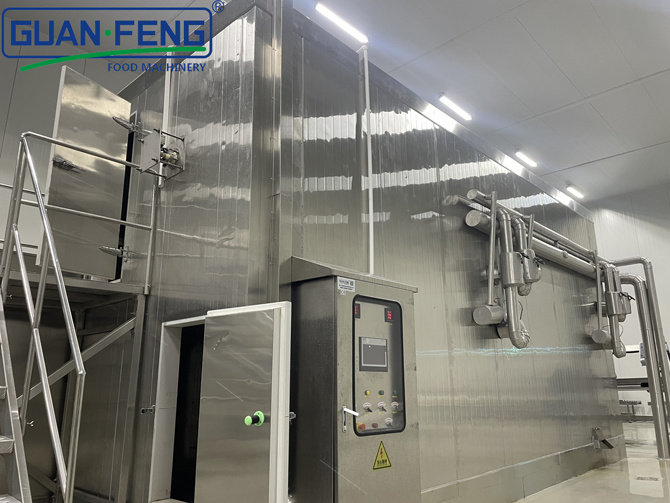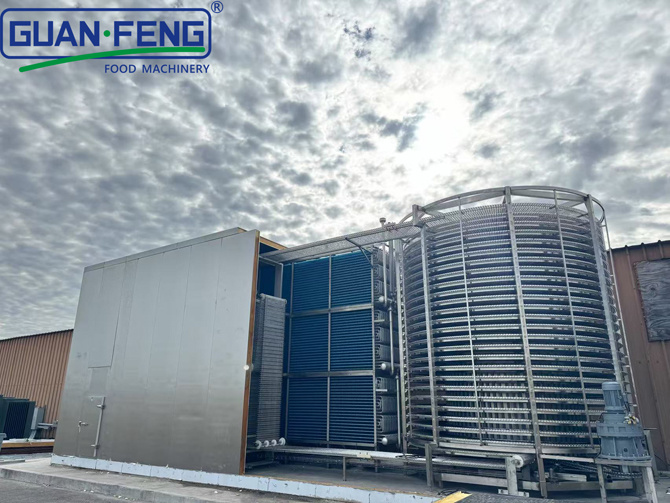BLOG
Focus on hot topics, real-time dynamics
Essential Maintenance Tips for Prolonging the Life of Your Vacuum Freeze Dryer
Essential Maintenance Tips for Prolonging the Life of Your Vacuum Freeze Dryer
When it comes to industrial equipment, the longevity and efficiency of machinery can significantly impact productivity and operational costs. The vacuum freeze dryer, a crucial component in many industries, including pharmaceuticals and food processing, requires diligent care to maintain its performance. This guide will provide essential maintenance tips and best practices to help you maximize the lifespan and efficiency of your vacuum freeze dryer.
Understanding Vacuum Freeze Drying Technology
Before diving into maintenance tips, it’s important to understand how vacuum freeze dryers work. This technology is utilized to remove moisture from products while preserving their structure and nutrients. The process involves freezing the product and then lowering the pressure to allow sublimation, where ice transitions directly to vapor. Understanding this process is key to recognizing the importance of maintenance.
Why Regular Maintenance is Crucial
Regular maintenance of your vacuum freeze dryer is crucial for several reasons:
- Efficiency: Proper maintenance ensures that the equipment operates at peak performance, reducing energy consumption.
- Cost-Effective: Preventative maintenance can save you from costly repairs and replacements down the line.
- Product Quality: Well-maintained equipment preserves the integrity of the products being dried.
- Safety: Regular checks can prevent accidents and ensure compliance with safety standards.
Maintenance Tips for Vacuum Freeze Dryers
Let’s explore some practical maintenance tips that can help prolong the life of your vacuum freeze dryer.
1. Regular Cleaning of Components
Cleaning is the first step in maintaining your vacuum freeze dryer. Dust, debris, and residue can accumulate, affecting performance.
A. Cleaning the Chamber
It’s essential to clean the drying chamber regularly. Use a soft cloth and a non-corrosive cleaning solution. Avoid abrasive materials that could scratch the surfaces.
B. Cleaning the Condenser
The condenser should be kept free of ice build-up and contaminants. Regularly check and clean the condenser coils to ensure efficient heat exchange.
2. Inspect Seals and Gaskets
The seals and gaskets in your vacuum freeze dryer play a critical role in maintaining the vacuum environment. Regular inspections can help identify wear and tear.
A. Signs of Damage
Look for cracks, splits, or deformations. If you notice any damage, replace the seals immediately to prevent air leaks and maintain efficiency.
B. Lubrication
Use appropriate lubricants on seals and gaskets to ensure a tight fit and prevent sticking. This simple step can greatly enhance their lifespan.
3. Monitor Temperature and Pressure Settings
Proper temperature and pressure settings are vital for effective drying processes.
A. Calibration
Regularly calibrate your temperature and pressure gauges. Incorrect readings can lead to inefficient drying cycles, affecting product quality.
B. Data Logging
Utilize data logging systems to track performance over time. This data can help identify patterns or issues that may require attention.
4. Conduct Routine Maintenance Checks
Schedule regular maintenance checks as part of your operational routine.
A. Daily Inspections
Perform daily checks on critical components, including the vacuum pump, electrical connections, and overall machine condition.
B. Comprehensive Monthly Reviews
Conduct more thorough inspections monthly. This includes checking for wear on belts, pulleys, and other mechanical components.
5. Optimize Your Operating Procedures
Your operating procedures can have a significant impact on the lifespan of your vacuum freeze dryer.
A. Loading Techniques
Avoid overloading the dryer, as this can strain the machinery and lead to inefficient drying. Follow the manufacturer’s guidelines for optimal loading.
B. Product Preparation
Ensure that products are prepped correctly before introducing them into the dryer. This includes proper cutting, blanching (if necessary), and cooling procedures.
6. Use Quality Replacement Parts
When replacing any parts, always opt for high-quality components that meet or exceed manufacturer specifications.
A. OEM vs. Aftermarket
While aftermarket parts may be cheaper, they can lead to suboptimal performance. Original Equipment Manufacturer (OEM) parts are typically recommended for best results.
B. Maintenance Records
Keep detailed records of all maintenance and repairs performed. This can be beneficial for troubleshooting future issues and maintaining warranty coverage.
7. Training Staff on Proper Usage
Ensure that all personnel operating the vacuum freeze dryer are adequately trained.
A. Regular Training Sessions
Hold training sessions to review operating procedures, maintenance practices, and safety protocols.
B. Encourage Open Communication
Create a culture where staff feels comfortable reporting issues or suggesting improvements. This proactive approach can lead to enhanced equipment performance.
8. Schedule Professional Servicing
In addition to regular in-house maintenance, consider scheduling professional servicing.
A. Annual Inspections
An annual professional inspection can help identify potential issues that may not be visible during routine checks.
B. Upgrades and Modifications
Consult with professionals about potential upgrades to improve efficiency and performance.
Common Problems and Troubleshooting Tips
Despite best efforts, problems can still arise. Here are some common issues and how to troubleshoot them.
1. Insufficient Vacuum Pressure
If your vacuum freeze dryer is not achieving sufficient pressure, consider the following:
- Check for leaks in the system.
- Inspect the vacuum pump for damage.
- Ensure that seals and gaskets are intact.
2. Inconsistent Drying Times
Inconsistent drying can indicate a problem with temperature or pressure settings.
- Calibrate your sensors to ensure accurate readings.
- Evaluate the load size; overloading can lead to longer drying times.
3. Excessive Frost Build-Up
If frost builds up too quickly, it can affect drying efficiency.
- Ensure that the chamber is cleaned regularly.
- Check the condenser for any blockages.
FAQs About Vacuum Freeze Dryer Maintenance
1. How often should I clean my vacuum freeze dryer?
It is recommended to clean the unit after each use, with a thorough cleaning at least once a month.
2. What are the signs that my vacuum freeze dryer needs professional servicing?
If you notice unusual noises, leaks, or persistent inefficiencies, it may be time to schedule a professional service.
3. Can I use aftermarket parts for my vacuum freeze dryer?
While aftermarket parts can be used, it is advisable to use OEM parts to ensure proper performance and longevity.
4. What is the ideal operating temperature for vacuum freeze dryers?
The ideal operating temperature can vary by product, but it typically ranges from -40°C to -50°C during the freeze phase.
5. How do I extend the life of the vacuum pump?
Regularly check and replace oil, inspect for leaks, and ensure it is free of debris.
Conclusion
Maintaining your vacuum freeze dryer is essential for maximizing its efficiency and lifespan. By implementing regular cleaning protocols, monitoring key performance indicators, and investing in quality components, you can ensure that your equipment operates smoothly and effectively. Remember, a well-maintained vacuum freeze dryer not only enhances product quality but also contributes to overall operational success. Prioritize maintenance, and you will reap the benefits in the long run.
Hot Tags:
PREVIOUS:
Contact Us
E-mail:
sales@syguanfeng.com
Tel:
+86 15088506234
Address:
South Industrial Park of Dongguan, Shangyu District, Shaoxing City,Zhejiang Province,China.
GUANFENG, your customization experts!
GUANFENG FOOD MACHINERY - leading supplier of integrated food processing solutions
Copyright© 2024 ZHEJIANG GUANFENG FOOD MACHINERY CO.,LTD.










